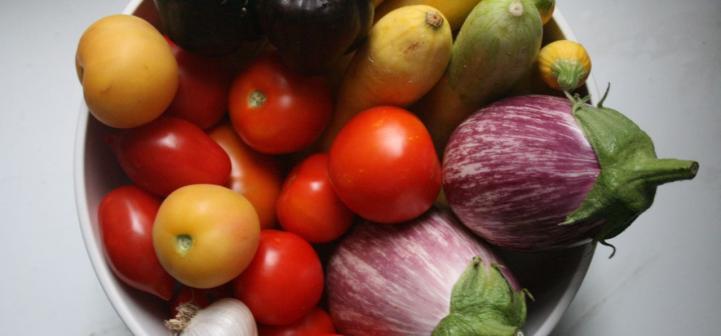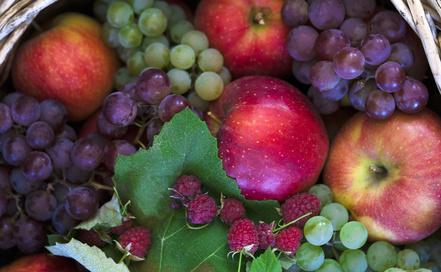
We’ve all probably heard that nutrition is very important for children’s health and ability to succeed in the classroom. School lunchrooms nationwide have been improving the nutritional quality of the meals served in order to better support students’ health and academic ability. An integral part of healthy meals are fruits and vegetables, and what better way to prepare school meals than with produce fresh from local farms?
Farm-to-school programs are increasing in popularity among school districts throughout the nation. While these programs can be initiated by just one community member, they really require a collaborative effort from several cooperating community members and organizations. Here are some tips for spreading the word and gaining support for farm to school programs in your community.
Form a Group: Developing a farm-to-school group or committee can be a great way to unite various individuals and agencies in order to better direct and support your focus. Members of this committee could include parents, food service directors, farmers, and community agencies. Once established, the committee can host events, attend community events, reach out to media sources, and even create a webpage. For more information on forming a group, or facilitating a farm-to-school group meeting, visit SmarterLunchroom.org.
Evaluate Interest: Beginning a farm-to-school program can be challenging, but if you reach out to individuals or agencies that are interested in supporting this effort, the task can be much more manageable. The Cornell Farm to School in the Northeast Toolkit (PDF) contains needs assessment surveys that can be handed out to food service directors and farmers to evaluate the level of interest and ability to support a farm-to-school program.
Educate and Promote: Many students, parents, and school-based faculty and staff may be unaware of where their food comes from and how agriculture plays an essential role in our food supply. Without this knowledge, these stakeholders may be reluctant to try unfamiliar fruits and vegetables. Beginning a school garden and taking field trips to farms can be great ways to engage students and teachers and promote nutrition education in the classroom. Hanging posters promoting agriculture and healthy eating in the school lunchroom is an excellent way to promote interest in farm-to-school produce. Cooking demonstrations can also be an interesting way to involve children and drum up excitement about local farming and nutrition.
Parents and other community members should be educated on farm-to-school programs as well. Schools can host events for parents and students to help Inform and build interest. Presentations on the benefits of farm-to-school programs can also be scheduled for PTA or Board of Education meetings. Education for food service workers may also be a helpful strategy to get the staff on board. Cooking workshops can be a fun and interesting way to involve staff members.
Connecting the community with local farmers is also important to promote. A major benefit of buying locally grown food is that consumers are able to meet and develop relationships with farmers. These relationships not only benefit the local economy, but also help to educate students about their food environment. Local farmers have a wealth of knowledge that can be shared with parents, school officials, students, and community members. Inviting farmers to speak at school-based food events such as local food tastings can be a great way to connect the community with local farmers. Having farmers serve local foods in school lunchrooms can be an effective method as well. Schools can even serve as a terrific location to host farmers markets and expose a wide array of community members to the benefits of locally grown food.
There are many ways to support farm-to-school initiatives in your community. Once you establish a group of interested individuals, get creative! For more tips and resources, or to learn about other successful farm to school programs, visit the Cornell Farm to School website.
Contributor
Amanda Rae Root, Cornell University Cooperative Extension of Jefferson County
Photo by galant / CC BY http://creativecommons.org/licenses/by/2.0/
